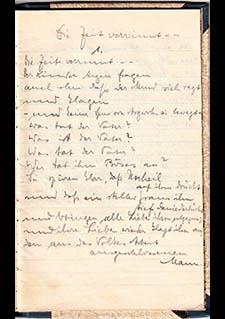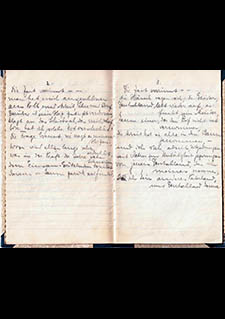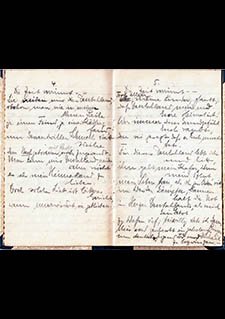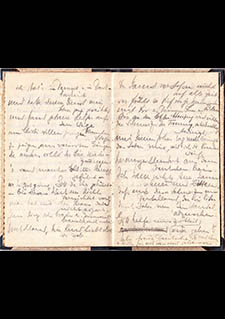Working Illegally for the Confessing Church
After the Lutheran Confessional Fellowship in Thuringia failed to provide Werner Sylten a regular position as pastor, it appointed him full-time executive director of its office in Gotha in May of 1936. This office was regarded as illegal by both the Thuringian church government and state and party authorities and had to operate under an assumed name. In the Confessional Fellowship’s office, Sylten worked closely together with Helmut Gollwitzer, who was in charge of education and evangelization.
The office’s staff supplied the members of the Confessional Fellowship with informational material, helped persecuted members of the Confessing Church, protested against encroachments by state and party authorities and maintained contacts to the Confessing Church outside of Thuringia. Sylten and Gollwitzer’s collaboration ended in March of 1937 when the Gestapo imposed a public speaking ban on Gollwitzer and he had to leave Thuringia. The Gestapo closed down the Confessional Fellowship’s office one year later on March 21, 1938. Werner Sylten lost his job and was expelled from Thuringia.
Once again, he had to part from his sons and was on the street without any prospects. To make matters worse, Sylten’s hope of being able to marry Brunhilde Lehder, a former colleague in Bad Köstritz, had also been dashed to pieces in Gotha. According to the Nuremberg Laws, “half-Jews” required a special dispensation to marry, which Sylten was denied. His relationship with Brunhilde Lehder did not receive any support from the Lutheran Confessional Fellowship, either. He gave his deep despair over his situation expression in poems such as “Die Zeit verrinnt” (Time Slips Away).
Source / title
- © Private collection of Walter Sylten, Berlin




